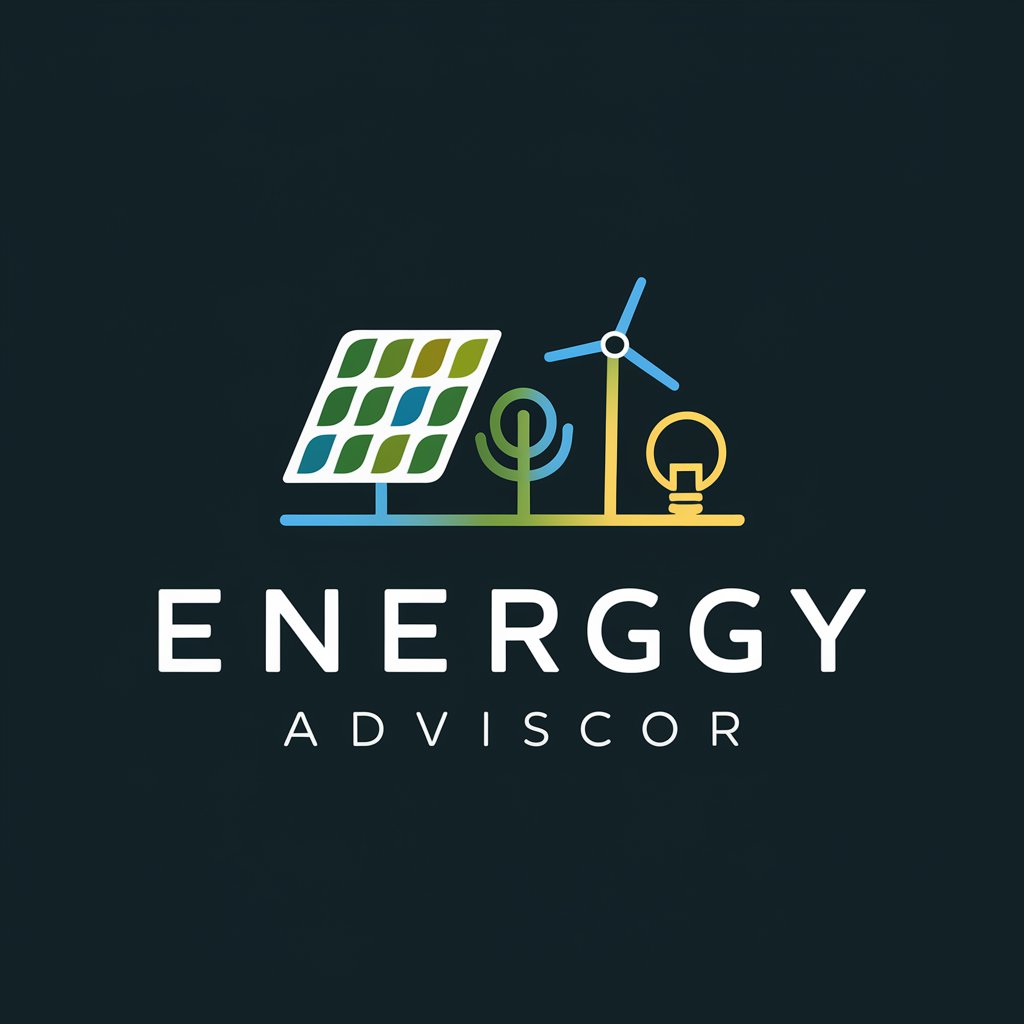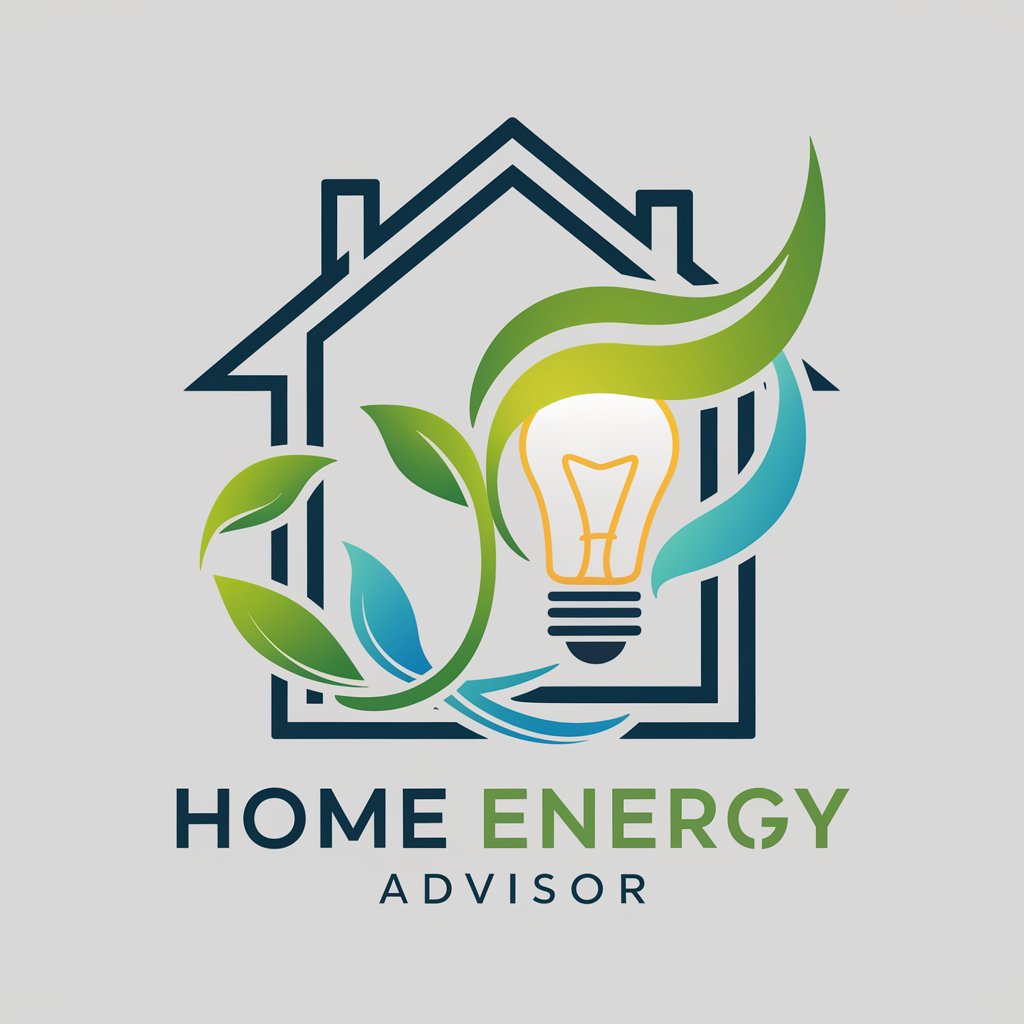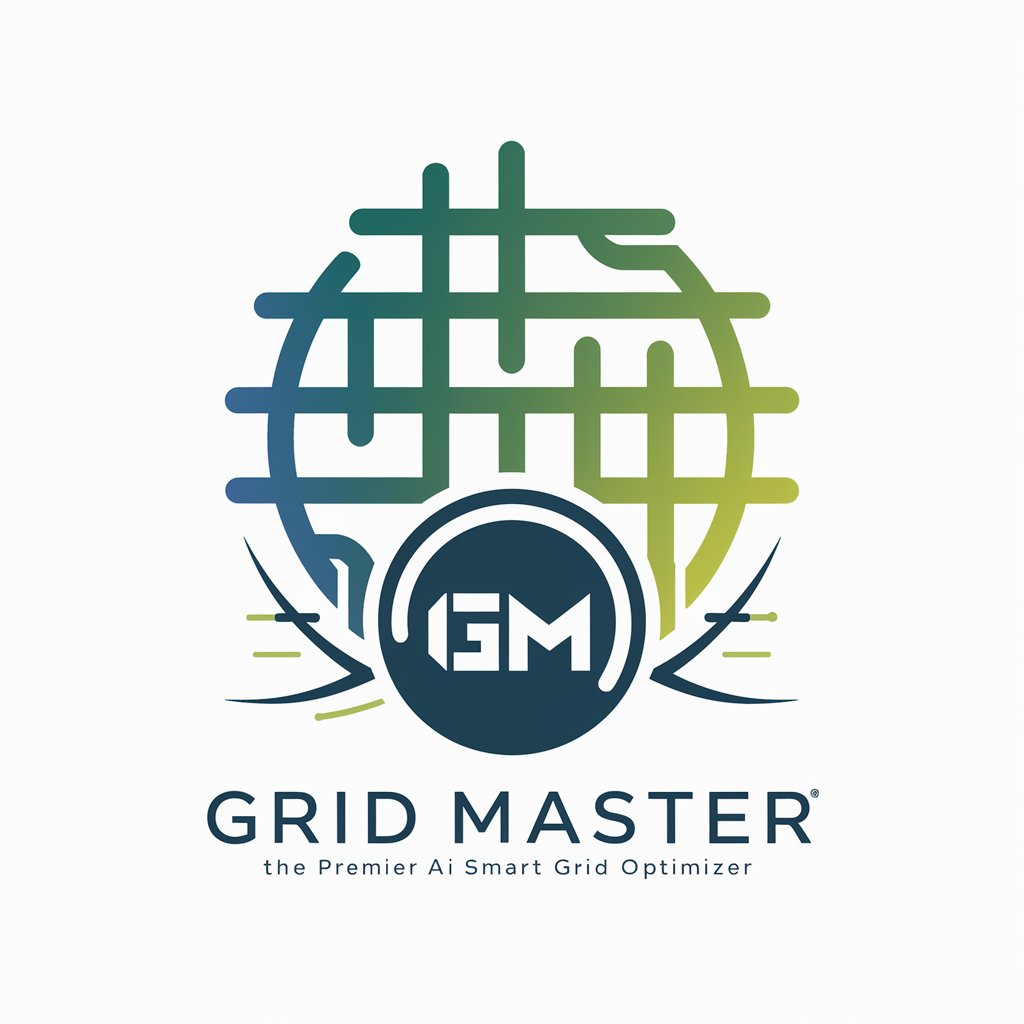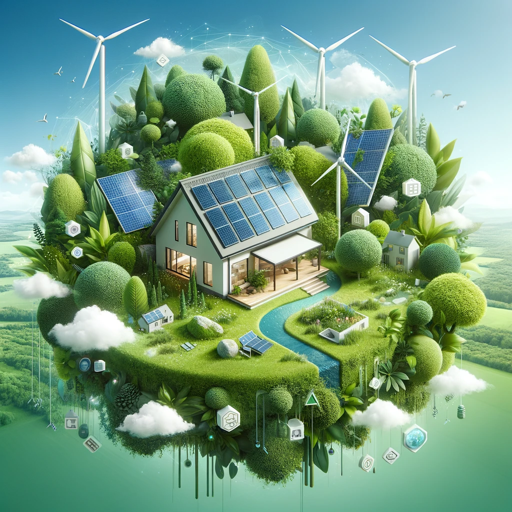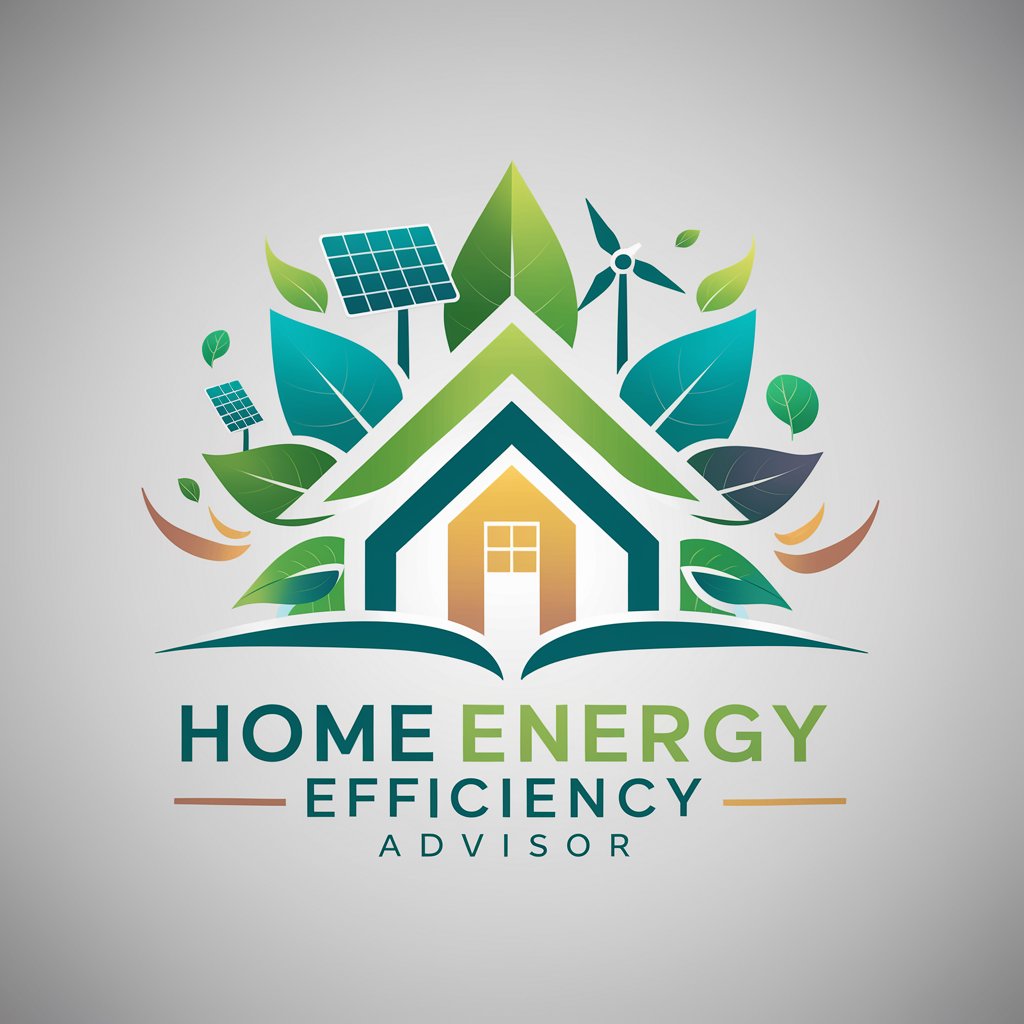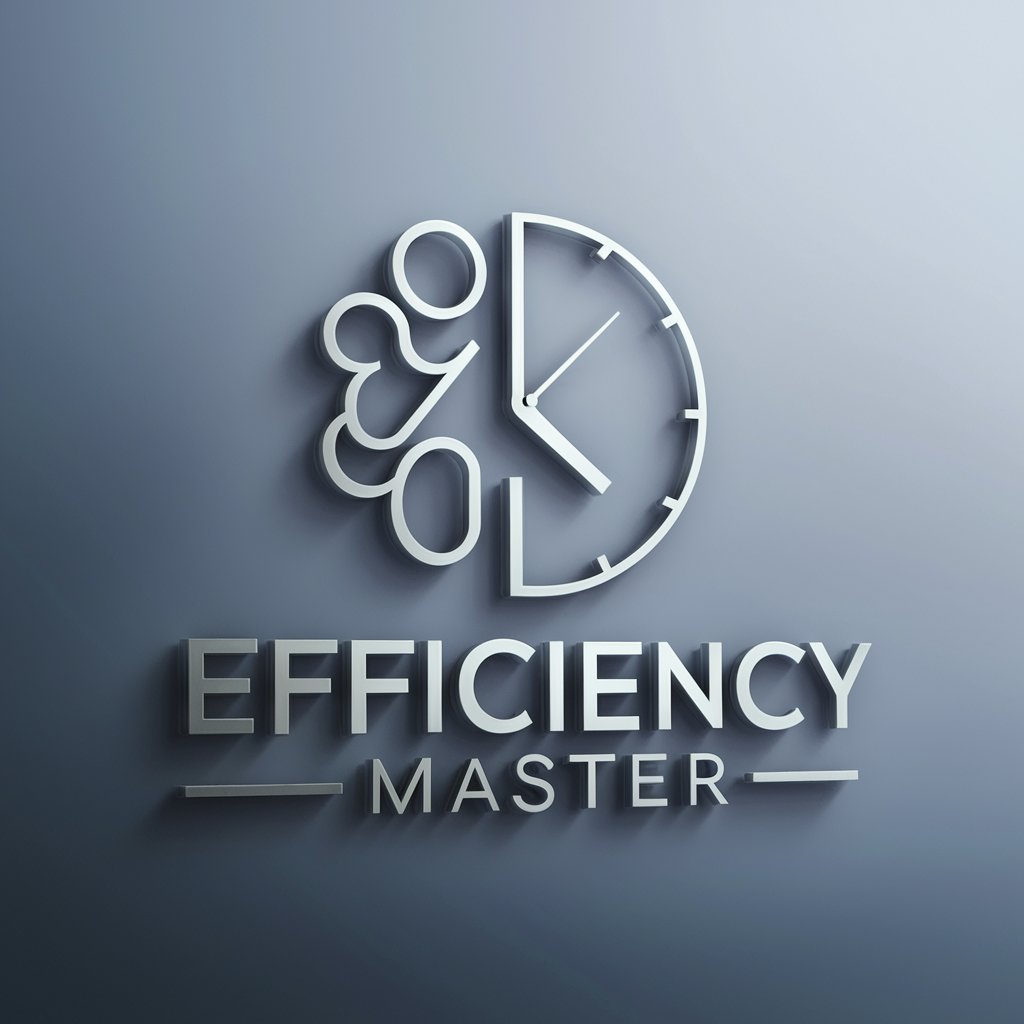
Energy Efficiency - Energy Efficiency Guidance
Hello! Ready to explore energy efficiency and sustainable living?
Optimize energy use with AI insights
How can I reduce my energy consumption?
Tell me about solar energy benefits.
What are eco-friendly lifestyle tips?
Explain the importance of energy efficiency.
Get Embed Code
Introduction to Energy Efficiency
Energy Efficiency, as a specialized GPT model, is designed to offer insights and advice on conserving energy, leveraging renewable energy sources, and promoting sustainable living practices. The core purpose is to support individuals and organizations in reducing their environmental footprint through energy-saving strategies, renewable energy adoption, and eco-friendly lifestyle choices. By providing detailed information, practical tips, and innovative solutions, Energy Efficiency aims to facilitate a deeper understanding and implementation of sustainable practices. Examples of scenarios illustrating these aspects include advising homeowners on how to improve their home's energy efficiency through insulation and energy-efficient appliances, guiding businesses in adopting renewable energy solutions like solar or wind power, and offering tips on sustainable living, such as reducing water usage and minimizing waste. Powered by ChatGPT-4o。

Main Functions of Energy Efficiency
Energy-Saving Strategies
Example
Providing personalized recommendations for reducing energy consumption in residential homes, such as through the use of LED lighting, energy-efficient heating, and cooling systems, and smart home technologies.
Scenario
A homeowner looking to reduce their electricity bills receives advice on installing programmable thermostats, sealing leaks around doors and windows, and choosing Energy Star-certified appliances.
Renewable Energy Solutions
Example
Advising on the implementation and benefits of renewable energy systems, including solar panels, wind turbines, and bioenergy options.
Scenario
A small business owner interested in cutting energy costs and supporting environmental sustainability explores options for installing solar panels on their property. Energy Efficiency provides information on potential savings, tax incentives, and environmental impact.
Sustainable Living Tips
Example
Sharing practical advice for adopting an eco-friendly lifestyle, such as reducing waste, conserving water, and choosing sustainable transportation options.
Scenario
An individual committed to reducing their carbon footprint learns about composting organic waste, collecting rainwater for garden use, and biking or using public transportation instead of driving.
Ideal Users of Energy Efficiency Services
Homeowners and Renters
Individuals looking to reduce their household energy consumption and costs, improve comfort, and contribute to environmental sustainability will benefit from energy-saving tips, renewable energy options, and sustainable living practices tailored to their living spaces.
Businesses and Organizations
Enterprises seeking to lower operational expenses through energy efficiency, adopt renewable energy to reduce carbon emissions, and enhance their corporate social responsibility profile. Energy Efficiency offers guidance on energy audits, green certifications, and sustainable business practices.
Policy Makers and Educational Institutions
Individuals and entities involved in crafting policies for energy conservation, sustainability educators, and researchers interested in the latest trends in energy efficiency and renewable energy. They can utilize the insights for developing programs, policies, and curricula that promote environmental stewardship.

How to Use Energy Efficiency
Start with a Free Trial
Initiate your journey towards energy efficiency by exploring yeschat.ai, where you can engage with our tools without the need for a login or ChatGPT Plus subscription.
Identify Your Goals
Determine your primary objectives for energy efficiency, whether it's reducing utility bills, decreasing environmental impact, or enhancing sustainable living practices.
Explore Energy-Saving Strategies
Utilize the tool to learn about various energy-saving strategies tailored to your goals, from optimizing home insulation to adopting renewable energy solutions.
Implement Recommendations
Apply the personalized recommendations provided by the tool, incorporating energy-efficient appliances, smart home technologies, and behavior changes into your daily routine.
Monitor and Adjust
Regularly monitor your energy consumption to assess the impact of your changes and make adjustments as needed to enhance efficiency and savings over time.
Try other advanced and practical GPTs
Tinderella AI
Elevate Your Tinder Game with AI

Pitch Perfect
Elevate Your Presentations with AI
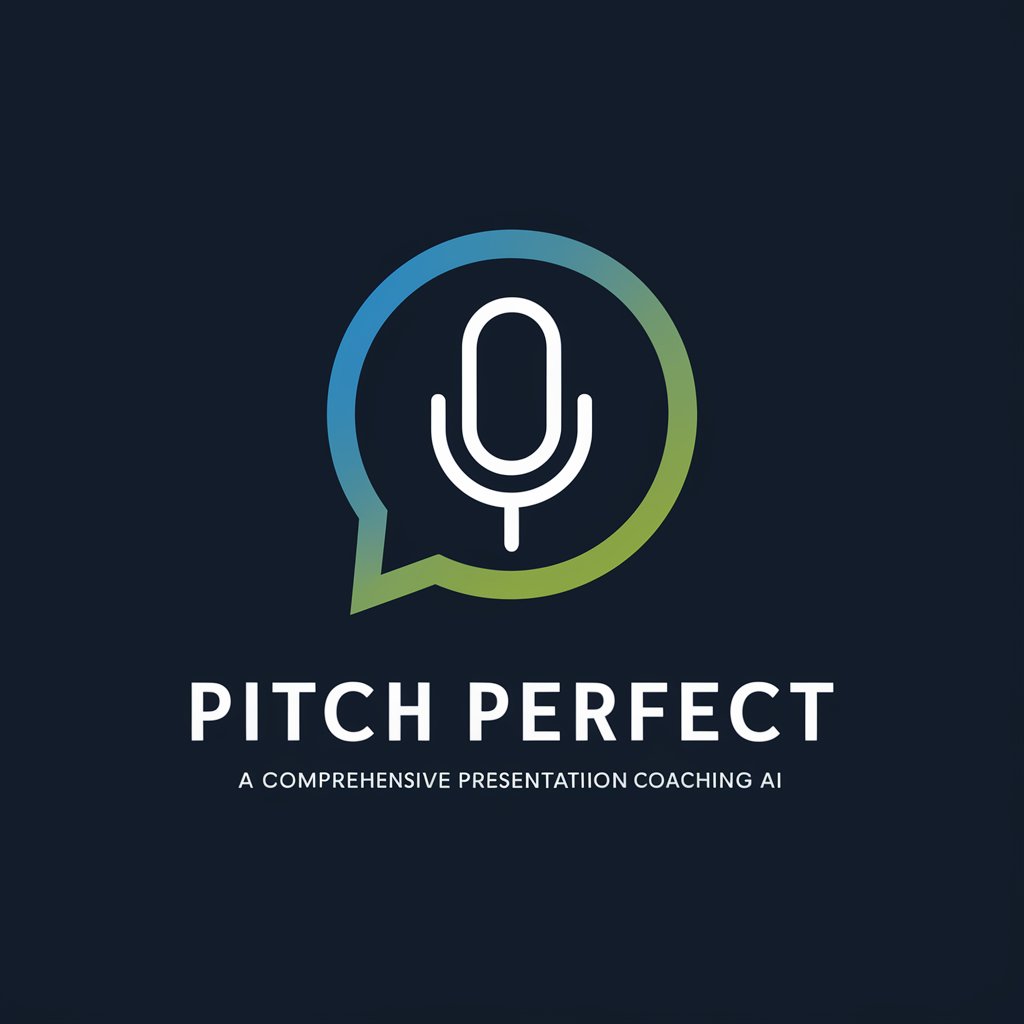
Trends Advisor
Navigating Trends with AI Precision

Academic Editor
Elevate Your Academic Writing with AI

Home Scout
Empowering Your Home Journey with AI

Education Ally
Empowering education with AI

THE PRESIDENT
Leadership insights at your command

Seabiscuit: Accounting CFA Copilot
AI-Powered Precision in Accounting and Finance

[comfy_ui] operation encyclopedia
Master AI Artistry with Ease
![[comfy_ui] operation encyclopedia](https://r2.erweima.ai/i/CbGlUjB5QGGVPIWCYGP-NQ.png)
Ok-Bot GPT
Empowering creativity with AI

Candidate Summary Wizard
Streamlining Recruitment with AI
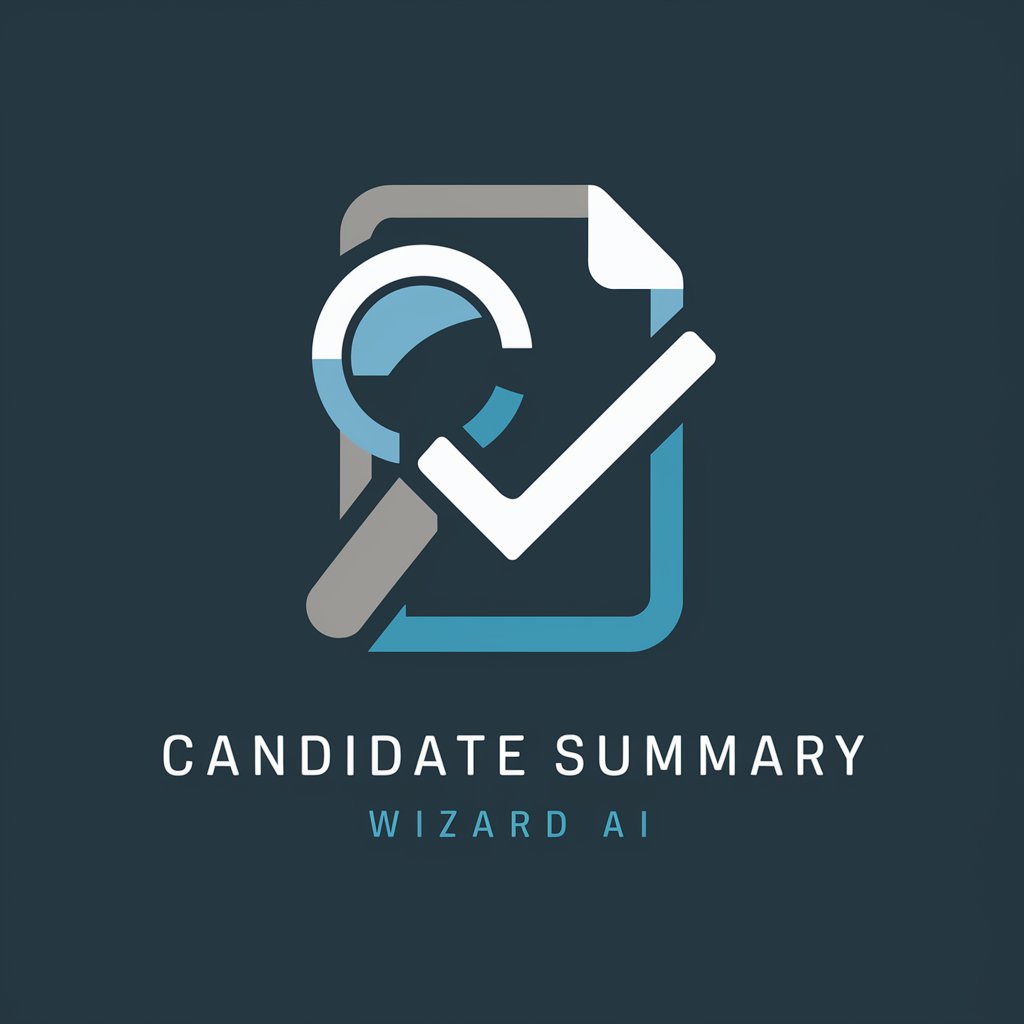
SmoothFix Buddy
Enhancing Your Viewing Experience with AI

Energy Efficiency Q&A
What is energy efficiency and why is it important?
Energy efficiency involves using less energy to perform the same task, thereby reducing energy waste, saving money, and lessening the environmental impact. It's crucial for combating climate change and promoting sustainability.
How can I make my home more energy-efficient?
To enhance your home's energy efficiency, consider upgrading to energy-efficient appliances, improving home insulation, using LED lighting, and installing a smart thermostat to optimize heating and cooling.
What are some common misconceptions about energy efficiency?
Common misconceptions include the belief that energy efficiency always involves high upfront costs or that it can significantly compromise comfort. In reality, many efficiency measures are cost-effective and can improve living conditions.
Can energy efficiency impact the value of my property?
Yes, energy-efficient homes often have higher market values due to lower operating costs and the growing demand for sustainable living options among homebuyers.
How does renewable energy tie into energy efficiency?
Renewable energy sources, such as solar and wind, provide clean energy that reduces reliance on fossil fuels. When combined with energy efficiency measures, they can further decrease environmental impact and energy costs.
